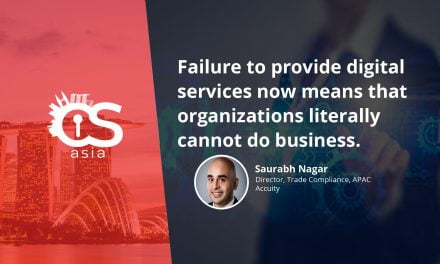The pandemic has caused industrial processes such as pharmaceutical production to undergo leaps in smart connectivity, autonomous safety and data-driven optimization.
The pharmaceutical industry researches, develops, produces, and markets products for use as treatments to be administered (or self-administered) to prevent, or alleviate symptoms and illnesses.
Pharmaceutical (pharma) facilities often rely heavily on digitalized processes, quality control systems and undisrupted delivery of raw materials. Not having reliable safety systems may result in environmental damage and hazards to both people and the production processes. In a pandemic, disruptions in the industry and its supply chains can mean life or death for countless people.
One firm that offers advanced solutions to the industry—such as Safety Systems on Chip and the Module Type Package—is supporting pharma firms in their adoption of Industry 4.0 to keep up with urgent and constantly-evolving global demands amid the pandemic.
HIMA’s Vice President (APAC), Friedhelm Best, helps CybersecAsia to understand how Industry 4.0 technologies are helping the pharma industry to evolve into Pharma 4.0 in the pandemic era.

CybersecAsia: How does Industry 4.0 pertain to the pharma industry?
Friedhelm Best (FB): In this industry, the convergence of humans, data, systems, and the development and deployment of autonomous processes comprises Industry 4.0.
During the current pandemic where tremendous medical and supply chain demands and changes have occurred overnight and are continuing to do so, Industry 4.0 has empowered the pharma industry to create new solutions quickly to address global medical emergencies.
Digital advancements in areas like systems integration, research, analyses; and innovative solutions such as AI, machine learning, and automation—are helping the industry to optimize supply chains, improve safety, and develop new treatments.
CybersecAsia: How do Industry 4.0 technologies such as Safety System on a Chip (SSoC) improve industrial pharma systems?
FB: Until recently, safety controllers in the industry had been large and less flexible to implement in industrial systems than ideal. Advances in microelectronics have allowed the miniaturization of such controllers into a tiny chip.
Such Safety Systems on Chip (SSoC) solutions have allowed many industries to easily and economically integrate more safety relays into their industrial process. Examples of typical application areas include safety-oriented controllers and safe monitoring of driverless transportation systems, logistics, intralogistics, sensors, actuators, and power plants.
SSoCs reduce pharma firms’ challenges in meeting Industry 4.0’s requirements of safe and highly efficient machine-to-machine communications, as well as in complying with safety standards ranging from IEC 61508 to SIL 3 requirements or ISO 13849-1 to PL-e.
CybersecAsia: So SSoCs benefit not just the pharmaceutical industry but also the APAC healthcare industry?
FB: Yes. The healthcare industry in APAC and globally is seeking new solutions to address limited resources amid increased patient needs. With the increasing implementation of robotics in the healthcare industry, more safety requirements have to be imposed to maximize operational safety.
This is where certified SSoC solutions can be implemented quickly into advanced robotic solutions to reduce the time-to-market.
TÜV-certified SSoCs, such as those from HIMA, are available for developers to configure and integrate into a wide variety of applications, including:
- Machines: smart safety systems for more efficient productions facilities
- Actuators: for safe drive systems
- Sensor technology: integrating sensors in safety fieldbuses
- Logistics and intralogistics: safety for collaborative transportation systems
- Medical technology: for safe medical devices
CybersecAsia: What other Industry 4.0 technologies can help pharmaceutical industries and critical infrastructures to streamline operations and maximize safety?
FB: For a long time, the pharma industry has relied on technology to improve safety and deliver more drugs more reliably. Leaps in technological advancement and global digital transformation are creating even greater opportunities for process improvements in many industries, including critical infrastructure such as public utilities.
Also, the COVID-19 pandemic is serving as a catalyst for significant reforms in the industry. APAC countries are witnessing the added efficiencies, cost savings and security benefits that come with digitalization. Technologies like Module Type Packages (MTP) enhance manufacturers’ ability to readily integrate modules developed by diverse manufacturers, thereby promoting reliable automated systems.
Autonomous safety systems will be more effective at preventing or detecting chemical leaks quickly, reducing safety concerns, and minimizing damage when incidents occur.
Moving forward, HIMA foresees a rise in the use of automated safety systems to be implemented in pharmaceutical and critical infrastructures.
CybersecAsia: With digitalization improving safety systems in the pharmaceutical industry, are cybercriminals deterred?
FB: The emerging connectivity of Industry 4.0 technologies and safety systems have led to additional new challenges including cybersecurity threats.
As technology advances with increasing complexity and pace, cyber threats and risks will escalate. The evolution of the industry to the Pharma 4.0 level where everything will be connected, will demand a higher level of security owing to the increased vulnerabilities of interconnected automated systems.
DigiconAsia thanks Friedhelm for his invaluable insights.

















